FRED HAMS makes the case for a new dawn in Utility Breeding

It is tempting to move on to looking at the varying effects of all exhibition selection, however as nearly all of my not inconsiderable post bag now seems to relate to things utility, it is probably best that at least the next few editions concentrate on the development of the utility strains of the pure breeds.
Here it is important to remember, first that nearly all of the breeds that went on to become the bed rock of the old pure bred based poultry industry were, if not ‘man made’,were created by years of selection out of, either accidental or deliberate crosses between if not breeds, then existing regional fowl populations. Many of these had been imported from the Far East c 1839-1890. We need to remind ourselves that in nearly every case the original purpose of these crosses was some form of utility with an aim of a Utility bird.
The importance of a strain
Even the first Wyandottes that were originally bred and selected with a stated aim of producing a large fowl with lacing with the same degree of perfection as Sebright bantams, when first produced were, probably due to the inclusion of Hamburg’s in their make-up, reasonable layers. As poultry keepers noticed what appeared differences to be differences of laying ability between different breeds, then laying trials began to be organised (c1900). Here it was perhaps surprising just how well the ornamentally coloured Wyandottes laid.
This story is from the Nov - Dec 2017 edition of Practical Poultry.
Start your 7-day Magzter GOLD free trial to access thousands of curated premium stories, and 9,000+ magazines and newspapers.
Already a subscriber ? Sign In
This story is from the Nov - Dec 2017 edition of Practical Poultry.
Start your 7-day Magzter GOLD free trial to access thousands of curated premium stories, and 9,000+ magazines and newspapers.
Already a subscriber? Sign In
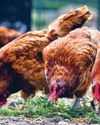
Growing food for Chickens
Mary Larham explores some crops to grow on your holding…
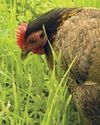
Poultry in the garden – the truth!
Jo-Jane Buxton shares her experiences
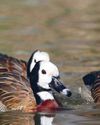
The British Waterfowl Association
Which came first, the goose or the egg?

WHY FIT A FAN IN AN INCUBATOR?
Brinsea Products, the Incubation Specialists explain the difference between still air and forced draught
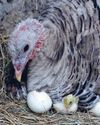
Incubating turkey eggs
Janice Houghton-Wallace looks at broody turkeys and artificial incubation

Chicken nesting box herbs
Diana Clauss owns The Blue Feather Farm, in St Cloud, Florida, home to chickens, ducks, goats, and Anatolian Shepherd dogs.
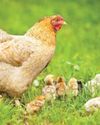
Incubate in January?
Jessica Wombwell says plan the breeding
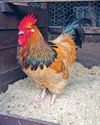
Andy's DIARY
Andy emphases the importance of keeping out damp and wet but allowing ventilation even in cold weather
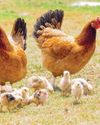
Feeding for Breeding
It may be winter, but as Joanna Palmer, nutritionist for Smallholder Range explains, now’s the time to get your flock in tiptop shape and plan ahead for a successful breeding season next spring.
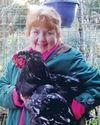
A chick named Cuckoo raised by a duck!
Chris Hammacott and her husband live on a small croft in the Outer Hebrides, they keep a ‘no kill’ flock or rare and rescue sheep which they use to spin and weave rugs. They also share the 8 acres with hens, ducks, cats and 9 rescue pugs.